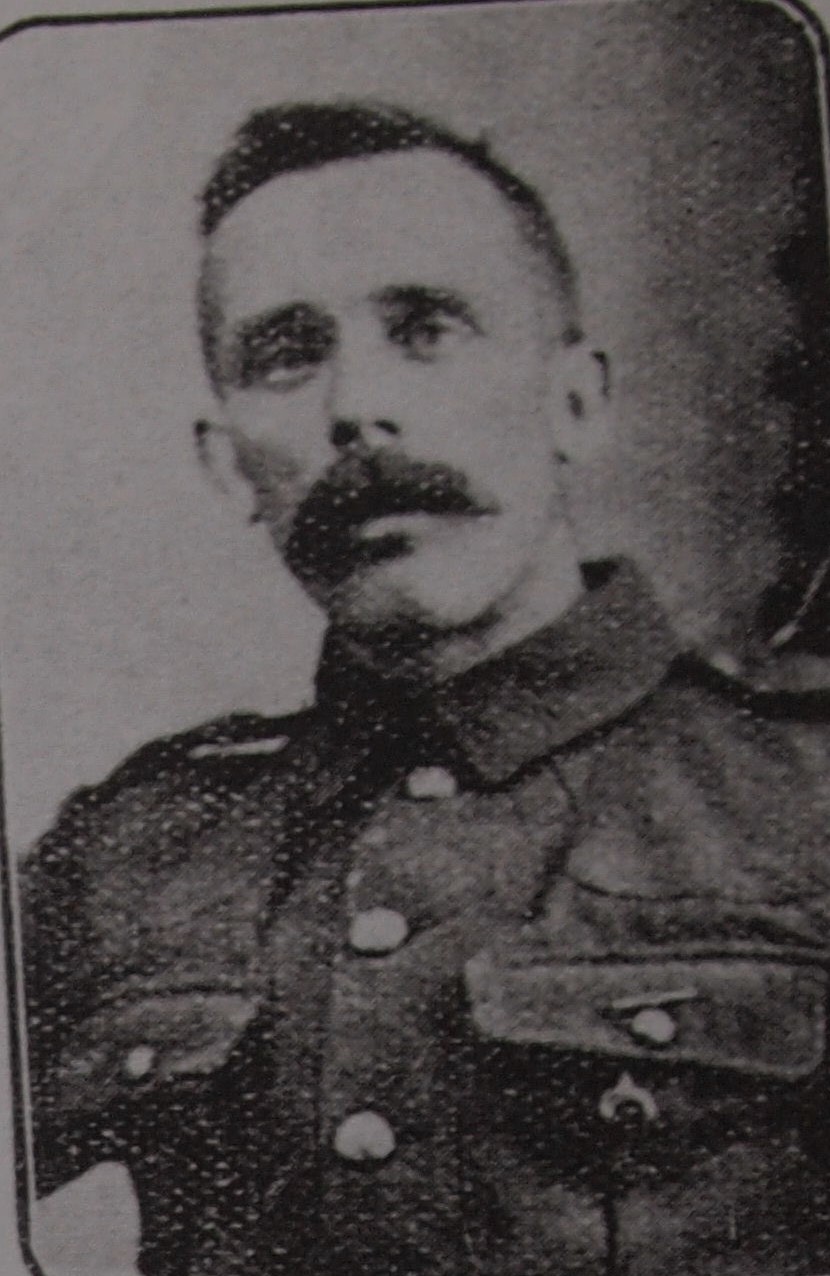
Mrs Pat Fazey visited the museum recently. She is originally from Yorkshire but has lived in Newent, North Gloucestershire for the past 17 years. We helped Pat research Private Pickering who was probably a distant cousin several times removed.
John Mason Pickering was born in the third quarter of 1877. By the time of the 1881 census he is 3 years of age and living with his parents John and Ann in the hamlet of Newbridge in Pickering. His father is a quarry labourer and he has 4 sisters, Rachel, Mary, Elizabeth and Grace.
In the 1881 census he is aged 14 and working as a “farm Servant at Brook farm in the Pickering area. The farm is run by the Banks family.
In 1904 (January to March) there is a record of marriage to an Edith Emily Cruce in the Eccleshall Bierlow district of Sheffield.
In the 1911 census John and Edith are residing at West Thorpe, Hoylandswaine near Pennistone. Aged 34 he is still working as a farm labourer. The couple have two daughters, Hilda Pearl aged 6 and Ruby Annabelle aged 1 and before 1914 they have son John.
Before enlisting in 1914 John Mason is working as a quarry labourer. He disembarks, with the 2nd battalion, in France in December 1914.
He is killed in action at Neuve Chapelle on the 12th of March 1915 and is buried in the Cabaret-rouge British cemetery Souchez. He was awarded the Victory and British War medals along with the 1914 Star.

Explore more memories from the ribbon
-
Norman Angus
Norman Angus was born at Southwick, Co. Durham in 1890. He was working as a miner prior to enlisting in September 1914. He was posted to the 8th Battalion of the Yorkshire Regiment. He would have been sent to France in September 1915 and he had a somewhat chequered career. He had been promoted to Corporal by early 1916 but was reduced to Private. He was wounded in December 1915 and again in September 1916 and unfortunately had to forfeit 6 days pay for unauthorised absence in 1917. 14043 Corporal Angus was awarded the 1915 Star, the British War Medal and the Victory Medal. He died aged 84 in March 1975.
-
George and Gertrude Laws, and their children
Submitted by Mike Crisp. Private 47165 George Laws was by trade a painter and decorator from the small market town of Beccles, Suffolk. He joined the 22nd Battalion, Northumberland Fusiliers (Tyneside Scottish) and served in France. On the opening day of Operation Michael, 21st March 1918 his battalion was in the front-line trenches around St Leger / Bullecourt where he was reported missing. His body was never recovered, and he is commemorated on the Arras memorial. According to the battalion diary they suffered 1,130 casualties on that day. George’s wife Gertrude, was heartbroken and never gave up hope of her husband being found, writing to the War Office on several occasions to try and gain more information. It was not until many months later friends of George visited her to relate that George was a member of a bombing party which went to a flank and were never seen again. Not only was Gertrude in mourning but also on the poverty line, forced to bring up 2 small children on her own. To help make ends meet she took in washing, sat with the dying, and laid out corpses for the local undertakers. Her son became the surrogate ‘man of the house’ and it was not until 1968 that he felt that he could leave his mother to get married himself. Gertrude died at the age of 97 in 1977.
-
James Allen
Judith Farrah told us about her great-grandfather James Allen, who’s joinery business contributed to the war effort on the Home Front. “James Allen was born in 1855 in Newbiggin, Richmond. He was originally called James Thistlethwaite but changed his name to Allen, which was his stepfathers name. He apprenticed with William Raworth, learning to be a joiner, and married his daughter Matilda. By 1901 he had set up his own joinery business known as James Allen & Son Ltd and worked on the Kursaal (later known as The Royal Hall) in Harrogate.” During the First World War, James did not join the armed forces but used his joinery business to create boxes for munitions. Static trench warfare required huge numbers of shells; the First World War became a war of production. Hundreds of manufacturing companies, including James’, were commandeered for munitions production. As men were sent to the trenches, women moved into the factories. Some factories’ workforce was almost entirely female, and this was true for James’ business.
